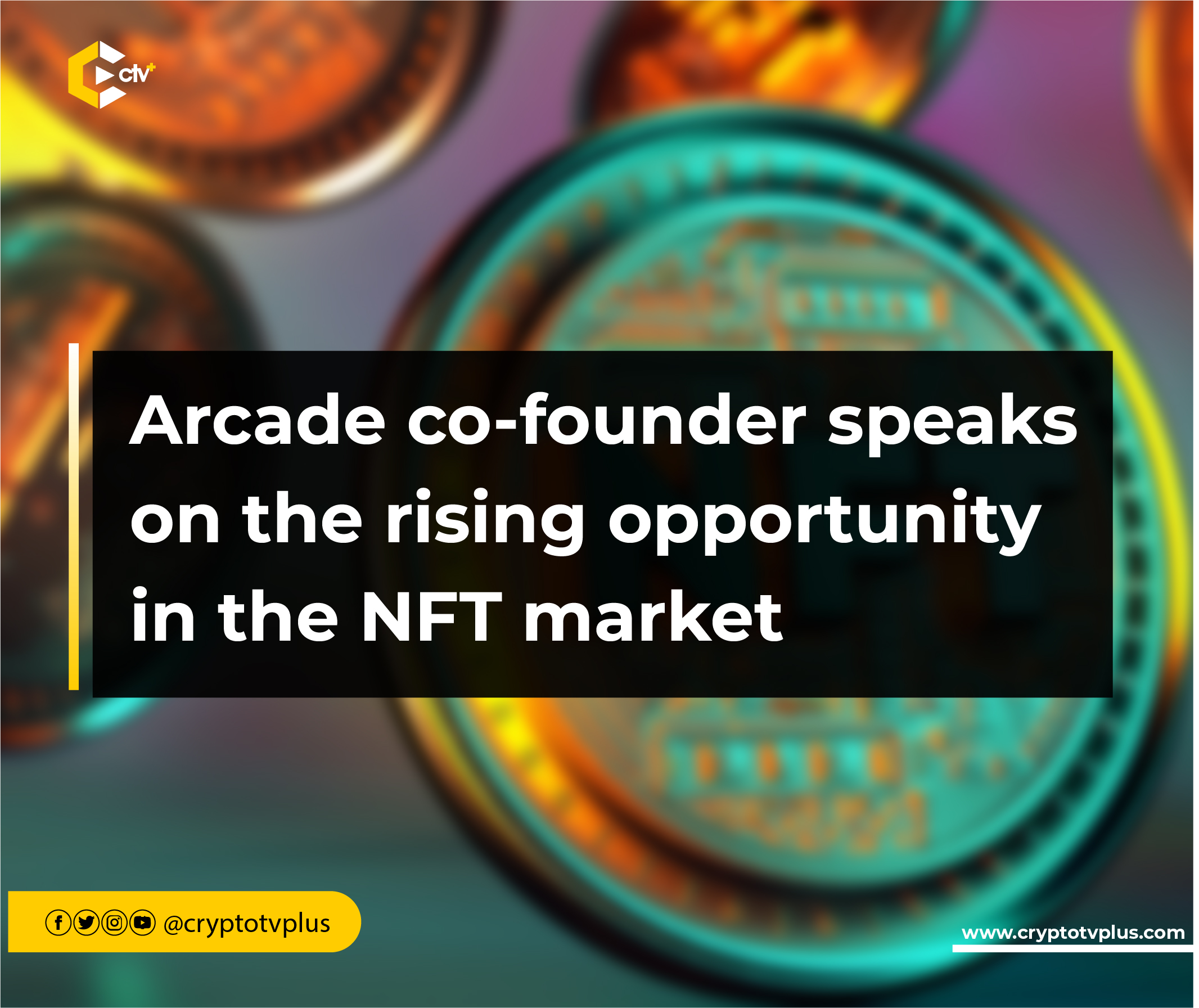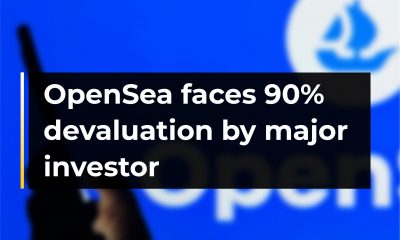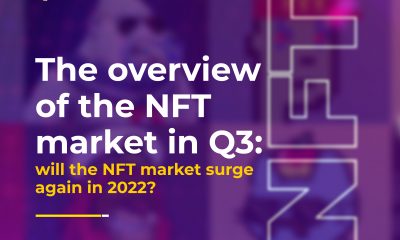FEATURED
Arcade co-founder speaks on the rising opportunity in the NFT market

The ever-growing industry of blockchain technology has seen the emergence of the NFT sector which has produced several innovative ideas such as NFT-based games, NFT fractionalization and more.
All of these have expanded the market value of the NFT industry. According to Statista, the revenue from the NFT market will reach $3.1 billion by 2027.
If the target for the next four years is at $3.1 billion, what is expected to drive this massive growth in the coming years?
Robert Masiello, co-founder of arcade.xyz, speaking about NFT Finance at the ETHCC Paris explained the different phases of how the sector has grown and what he sees as the future of the industry.
First, he began by defining the concept of NFT finance, which encompasses various financial services and products built around non-fungible tokens (NFTs).
Initially centered on NFT lending, NFT finance has expanded to include an array of products such as derivatives, AMMs, aggregators, and more.
He further categorized the NFT finance ecosystem into four major categories: Lending, where users borrow against their NFTs as collateral with examples such as CryptoPunks, Mutant Apes, and Board Apes; Derivatives which although relatively new, include products like options and perpetuals; Aggregators with platforms like Goblin Sacks, Spice Meta Street, and Snow Genesis leading the way; and Buy Now, Pay Later and Fractional Investing.
Robert delved into market statistics, specifically concentrating on the substantial loan volume within NFT finance protocols, valued at billions of dollars.
He pointed out that this value might not completely represent the sector’s growth due to the inclusion of buy-now-pay-later products not reliant on fully collateralized assets.
Additionally, he highlighted the adoption of NFT lending, with tens of thousands of unique users participating.
However, it’s important to recognize that there’s still potential for growth in the NFT space, as indicated by the larger number of unique NFT traders (18,000) within the same period.
Into the Future
During his presentation, Robert highlighted several noteworthy trends and opportunities that are shaping the future of the NFT market.
The co-founder noted that the future of NFT will see more adoption of layer 2 protocols as against the trend of NFT platforms being built on layer 1s.
He revealed that most of the protocols are on layer 1 because that is where most of the collateral exists in the ecosystem.
Robert suggested that adopting Layer 2 solutions could provide significant benefits.
These solutions could address scalability and efficiency concerns, enabling smoother transactions and interactions within the NFT ecosystem.
Embracing Layer 2 scalability could also reduce congestion and costs associated with Layer 1 networks.
Another trend he mentioned is Asset Diversity. Robert stressed the need for a broader range of assets beyond high-value NFTs.
This diversification would not only enhance the overall ecosystem but also facilitate the development of derivatives and other innovative financial products.
Expanding the asset base can open up new avenues for investors and traders to participate in the NFT market.
Evolution of aggregates platforms
He also pointed out that the evolution of aggregation platforms is another aspect of the near future of the industry.
Robert proposed the concept of aggregator platforms that simplify user interactions by providing a consolidated view of various NFT-based protocols.
These platforms could enhance accessibility to borrowing and lending options, making it easier for users to navigate the intricate ecosystem.
He also talked about the integration of tokenized real-world assets into NFT finance, and the rise of Decentralized Autonomous Organizations (DAOs) in the NFT sector.
This integration could attract a wider audience and bridge the gap between traditional finance and NFTs while the DAOs would enable community members to engage in decision-making and governance, fostering inclusivity and ownership.
Read also; Why Devs should Use zkBlob for Reducing Data-Availability Costs
















